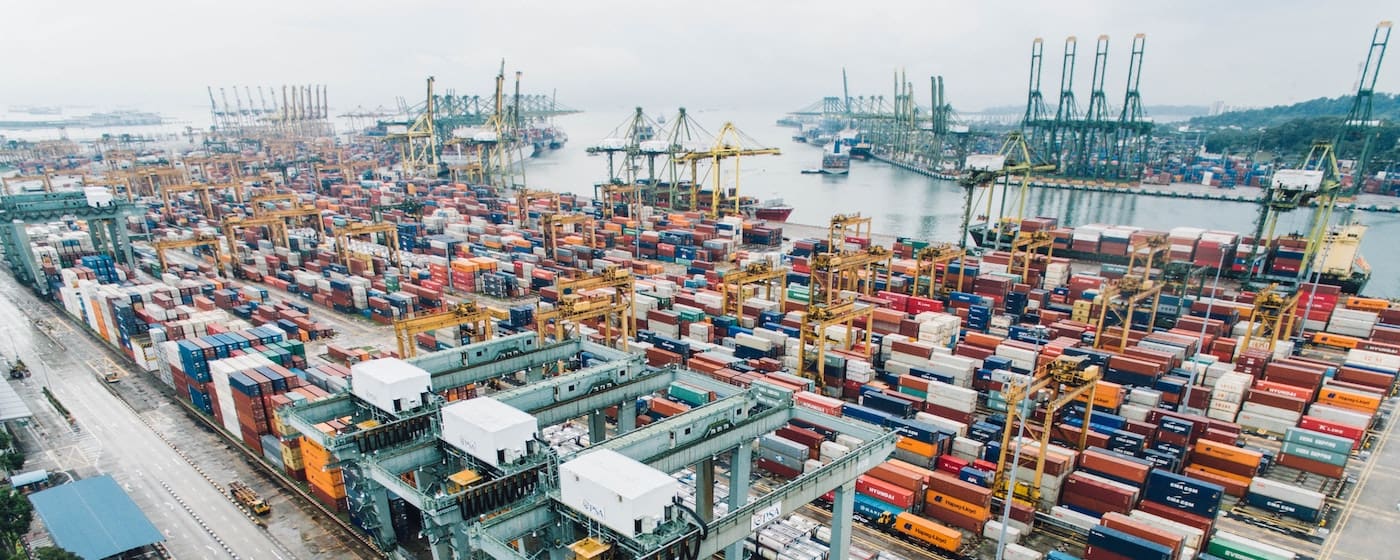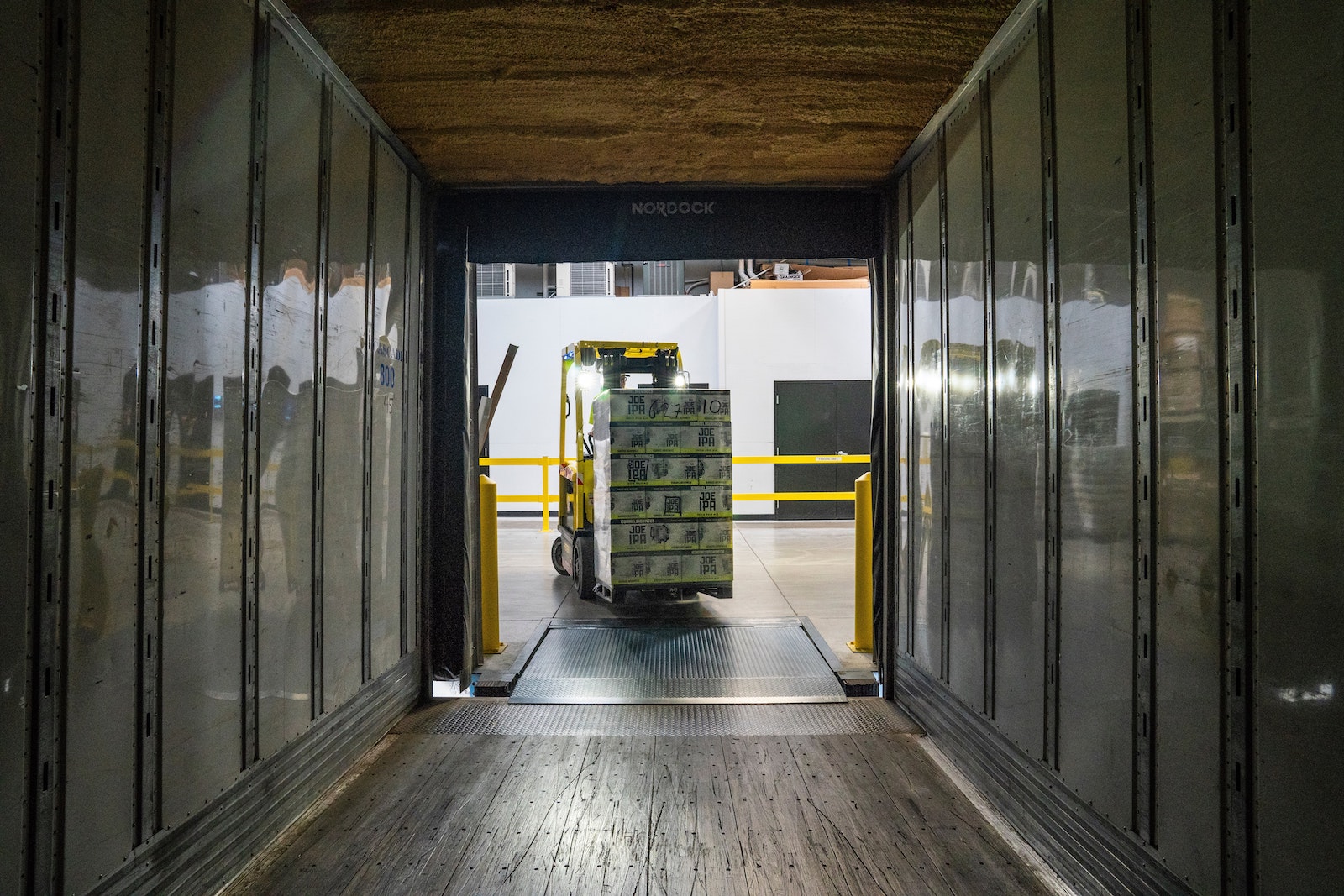Table of Contents
** Minutes
What are the differences between Free Carrier and Ex Works?
Other Incoterms alternatives to consider
How ShipBob helps with shipping logistics and ecommerce fulfillment
When shipping goods, especially internationally, sometimes a seller is primarily responsible for the pre-carriage shipping and export requirements.
This shipping practice is known as “free carrier” (FCA) and it involves a set of different rules known as Incoterms®: essential terms of trade for the sale of goods.
FCA is used more so for international shipments, and it works for different modes of transport including LCL (less than container load), FCL (full container load), and air when shipping freight.
This article discusses the different FCA Incoterms rules, when they apply, and the benefits and disadvantages of FCA.
What is Free Carrier?
Free Carrier, or FCA Incoterms, is a commonly used trade term that signifies that the seller is required to drop off the shipment to a named destination or seller’s premise, as outlined by the buyer. From here, it is transferred to the shipping carrier by the buyer.
“Free” alludes to the seller’s obligation (or the buyer’s lack of obligation) to manage the transfer of goods to the named place.
As per the FCA shipping terms, the seller can choose the location if the buyer doesn’t offer a location.
What are the obligations for sellers and buyers in Free Carrier?
Everyone talks about the importance of getting your shipping logistics right.
And the key to doing so is ensuring that the different obligations of both sellers and buyers are carefully outlined and enforced.
Here is a table that compares the obligations of the buyers and sellers as per the Free Carrier terms:
| Seller’s Obligations | Buyer’s Obligations |
| Manage commercial invoices and documentation. | Pay for the order as per the sales contract. |
| Load cargo into the buyer’s transport if the seller is meant to only deliver the goods to one of their own premises. | Unload the cargo if the goods are sent by the seller to a named location, other than the seller’s premises. |
| Pay the cost of pre-shipment checks. | Pay the post-carriage shipping. |
| Package and ready the order for shipping to the buyer. | Pay for the shipping insurance. |
| Manage export license and export formalities. | Manage and pay for the main carriage. |
| Manage pre-carriage of the goods to the named place of delivery. | Manage import formalities. |
| Offer proof of delivery. | Pay for the pre-shipment inspection for import clearance. |
| Pay the loading charges. |
To understand this better, let’s look at at a hypothetical scenario.
A US-based seller Trent ships orders to a UK-based buyer Bryan.
As per FCA, Bryan must commission a carrier and freight forwarder to transport the goods and Trent must arrange for pre-carriage from his warehouse to a named place, such as a terminal or transport hub, or forwarder’s warehouse.
The moment the shipper receives the goods at the named place, the liability for the goods transfers to Bryan.
Note: Export formalities are undertaken by the seller at the port of export, while import formalities are taken care of by the buyer at the destination port.
When should Free Carrier be used?
It’s best to use FCA in the case of international shipping, in which the buyer takes complete responsibility for the main carriage of the goods.
It also works out well to use FCA when shipping containerized goods. Containerized refers to the practice of carrying goods in containers of the same shape and size for shipping
Additionally, lots of sellers who would like to avoid the struggles of managing a large chunk of shipping logistics prefer this option.
What are the differences between Free Carrier and Ex Works?
The trade term Ex Works (EXW) is a shipping rule that states the seller only needs to ensure that goods are available and sent to their warehouses or place of business.
From there, the buyer is expected to pick up shipments and manage the rest of the freight.
It is different from FCA, which is more balanced when it comes to the division of risk and cost between seller and buyer.
When is FCA better than EXW (and when it is not)?
FCA is considered a better option than EXW since it does not put the buyer in a difficult position of arranging local transport and dealing with customs at the seller’s location.
Some of the other major differences between the two is outlined below:
| FCA | EXW |
| The seller delivers goods to a carrier, at a location decided by the buyer, for the buyers to pick up. | The seller delivers goods to their own premises for the buyers to pick up. |
| Fair sharing of responsibilities and risk between buyer and seller. | Inconvenient for the buyer since the majority of the shipping risk and responsibility falls on them. |
| The buyer assumes risk and cost once the goods reach the decided location/carrier hub. Title transfers to the buyer. | Convenient for the seller as they have very little responsibility. |
| Used for container transport. | Used by micro and small businesses that do not have the bandwidth to deal with shipping logistics. |
| Commonly used in international shipments. | Commonly used for domestic trade. |
| Delivery is considered to have happened when the goods are loaded onto the carrier arranged by the buyer. | Delivery is considered to have happened when the seller presents the order items to the buyer for collection at a pre-agreed location. |
| Loading risk stays with the seller. | Loading risk is on the buyer. |
What are Incoterms 2020?
Incoterms are a collection of shipping terms that appear on shipment contracts.
These rules are used to decide the time and place of delivery and when the ownership of the goods changes, plus the cost and risk of shipping transfers from the seller to the buyer.
These terms are upgraded every 10 years with the last update in 2020.
As per the Incoterms 2020, the 11 types of commercial terms set by the International Chamber of Commerce (ICC) are:
| Used for any mode of transport | Used for transport by sea and inland waterway |
| EXW – Ex Works | FAS – Free Alongside Ship |
| FCA – Free Carrier | FOB – Free on Board |
| CPT – Carriage Paid To | CFR – Cost and Freight |
| CIP – Carriage and Insurance Paid To | CIF – Cost, Insurance & Freight |
| DPU – Delivered At Place Unloaded | |
| DAP – Delivered At Place | |
| DDP – Delivered Duty Paid |
In the Incoterms 2020, it was established that the buyer can instruct the carrier (in the sales contract) to issue a bill of lading (BOL) to the seller after the goods have been loaded onto the international carrier.
This BOL is required by the seller to prove that the cargo was loaded and satisfies the terms of a letter of credit.
How do they differ from Incoterms 2010?
Pre-2020, the buyer would hire the carrier, which meant that the carrier has no obligations to the seller. This spelled trouble for the seller that needs a BOL, from the carrier, to get paid.
For the FCA, the biggest change in Incoterms 2020 (as compared to Incoterms 2010), is that the buyer can request the carrier to give the seller an onboard BOL.
Other Incoterms alternatives to consider
Apart from FCA, there are multiple other Incoterms that can aid in avoiding miscommunication between sellers and buyers.
Here are some of the popular ones:
Free on Board (FOB) shipping terms
FOB refers to when goods are being transported only by sea or inland waterway.
The cargo is the responsibility of the seller until it is loaded onto the vessel and cleared for export from the predetermined port. At this point, the transfer of risk happens with the title deed also switching to the buyer.
FOB is the best Incoterm for sellers who sell goods in bulk and don’t containerize their cargo.
Ex Works (EXW) shipping terms
EXW is when the seller has to take responsibility for the shipment, aside from ensuring the goods are available, packed, and delivered to a specified location.
This means that the buyer needs to manage the loading of goods onto the carrier, manage export procedures, and any onward transport. All costs incurred after the goods are dropped off by the seller are the buyer’s responsibility.
This is an Incoterm commonly used during domestic trade for different (or multiple) types of transport.
It’s difficult to implement in international trade because it’s difficult for the buyer to manage the loading and export formalities in a different country. And in case the seller helps with the loading, as a favor, it will still be at the buyer’s risk.
Cost, Insurance and Freight (CIF) shipping terms
Similar to FOB, with CIF the seller is responsible for the cost and management of insurance for the goods until it reaches the named port (pre-carriage).
And the rule expects the seller to only secure the shipment with a minimum insurance cover. Buyers who want to better safeguard their shipments from risks will need to specifically mention the required coverage amount in the commercial agreement.
It is only used for shipments via sea or inland waterways.
Delivery Duty Paid (DDP) shipping terms
With DDP shipping, the seller assumes a large chunk of the risk, cost, and responsibility.
This includes arranging for the carriage, delivering goods at the named place, and ensuring that it is cleared for import. All applicable taxes and duties (e.g. VAT, GST) are paid by the seller.
DDP the opposite of FAC in terms of the volume of the seller’s responsibilities.
The risk transfers to the buyer only when the goods reach the buyer and are ready to unload from the incoming mode of transport.
This can be used in case of shipments that are sent via any (or many) means of transport.
How ShipBob helps with shipping logistics and ecommerce fulfillment
Understanding the complexity of shipping logistics takes time.
As a business owner, you most likely won’t be involved in the logistics of shipping, but understanding your shipment options and how shipping works is important for running a healthy ecommerce supply chain.
As your logistics partners, ShipBob provides a hands-free approach when it comes to managing shipping logistics.
ShipBob’s fulfillment infrastructure, technology, best-in-class support, and expertise in logistics can help companies run their logistics operations on autopilot while saving time and money.
Our global omnichannel fulfillment capabilities enable businesses to spend less time on fulfillment and shipping, and more time focusing on expanding their distribution network to serve more customers.
For example, ShipBob DDP, our Delivered Duty Paid (DDP) solution can help. Without DDP, consumers in many countries face surprise fees, long delivery times and delays at customs. ShipBob’s DDP solution eliminates these post-purchase issues for a more streamlined approach to international fulfillment, while reducing customer service inquiries.
“We definitely saw advantages in the number of ShipBob’s international locations and the various features associated with being a global company. We have DDP shipping enabled for all of our international orders – that’s currently one of our favorite features.
We now have peace of mind that we can actually get things sent and delivered worldwide without having to worry about duties. People will reach out and say “Wow, that’s already done?” And we tell them, “Yep, it’s done.”
Ben Jablow, VP, Alliances at Postal
Ecommerce global network
ShipBob operates a global network of fulfillment centers across the US, Canada, the UK, the EU, and Australia. No matter what location(s) you choose to store inventory in, you get access to real-time inventory, fulfillment, and shipping data using ShipBob’s fulfillment platform.
ShipBob also partners with domestic, international, and regional carriers. This allows us to negotiate discounted rates, so you can save on international shipping costs.
“If I’m completely honest, though, the deciding factor that sold us on ShipBob was price. International fulfillment can be incredibly expensive, but ShipBob was cheaper than our old provider.
Their New Jersey-based facility in the Eastern region of the US is also more strategically located than our old provider’s warehouse, so it was cheaper to ship inventory to.”
John Greenhalgh, Co-Founder of A Year of Dates
Faster packaging and shipments
ShipBob automates the entire process of receiving and processing orders and getting them to the fulfillment queue soon after orders are placed on any of your sales channels.
Once an order is received, the process of picking and packing orders starts right away to get them ready for shipment, and ShipBob’s carrier partners pick up shipments at our fulfillment centers every day.
“Logistics is something you never think about until it stops working, and we’ve never come to that point with ShipBob. Everything just works. We are super happy with ShipBob and very impressed by how well they’ve pumped out our large volume of orders.”
Sergio Tache, CEO of Dossier
Ready to build a long-term and profitable ecommerce business without dealing with the hassle of logistics?
Speak to the experts at ShipBob and see how you can improve profits, save time, and serve more customers across the US and abroad.
Free Carrier (FCA) FAQs
Below are answers to the most common questions about the free carrier arrangement.
What does Free Carrier (FCA) mean in shipping?
Free Carrier, or FCA Incoterms, is a commonly used trade term that signifies that the seller is required to drop off the shipment to a named destination or seller’s premise, as outlined by the buyer.
Who pays FCA freight?
The main carriage part of the FCA freight is paid for by the buyer. Everything pre-carrier is handled by the seller.
Is FCA collect or prepaid?
FCA is always freight prepaid as the carrier needs to be handed over the goods to the carrier
How does FCA Incoterms work?
This trade term signifies an agreement between the buyer and seller. As per FCA Incoterms, the seller is responsible for delivering the order to a location specified by the buyer. Once the goods are received by the carrier, it becomes the buyer’s responsibility.
Can FCA be used for sea freight?
Yes, FCA can be used for any mode of transport from air to land and sea freight.



